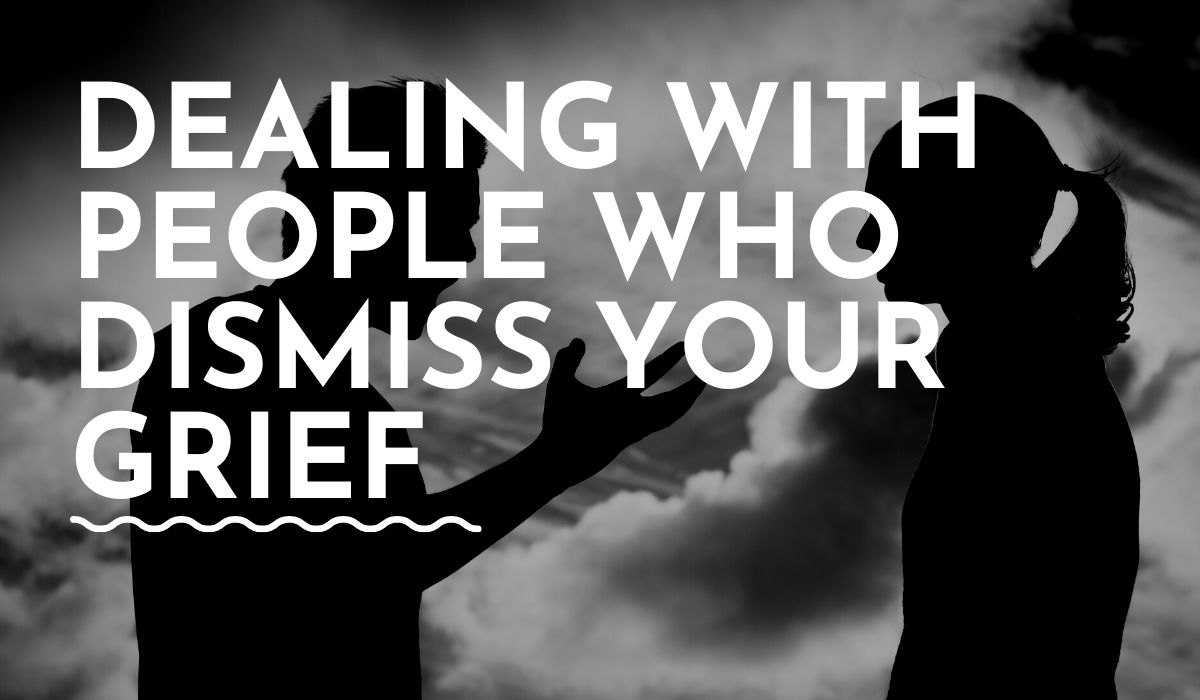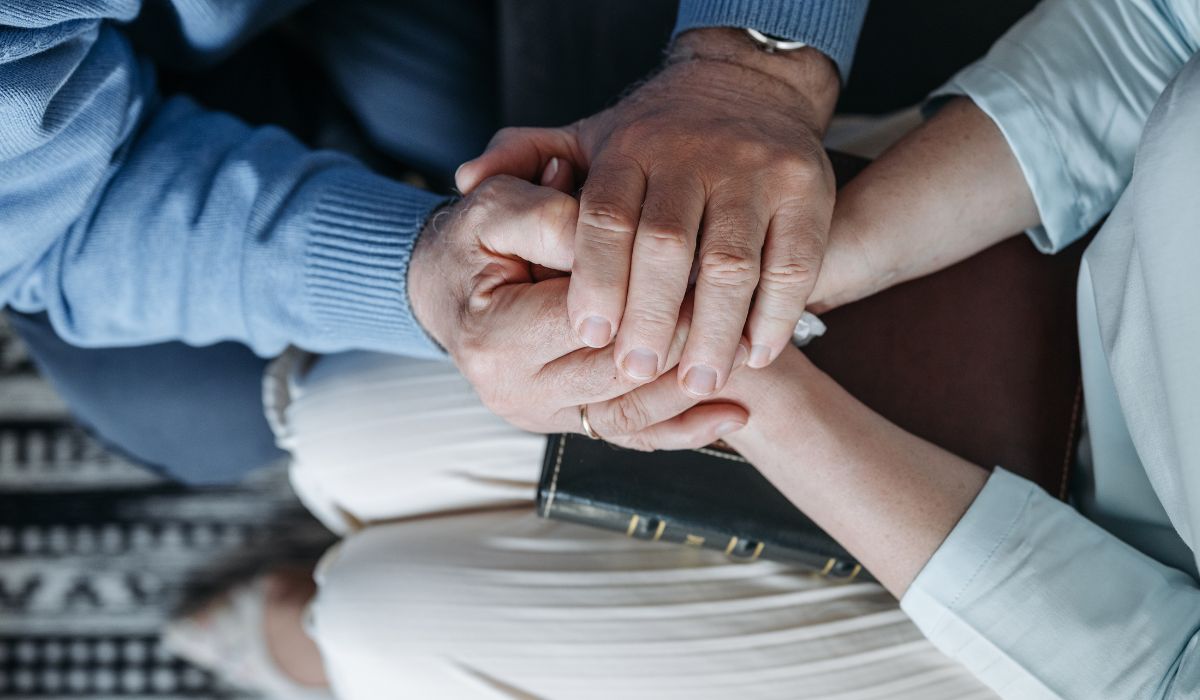Losing a pet is a deeply emotional experience, as many of us regard our pets as cherished family members.
Unfortunately, not everyone may understand or validate the profound grief that follows such a loss, often dismissing it as insignificant. This lack of empathy can add another layer of difficulty to an already challenging time.
However, you are not alone in facing this misunderstanding.
In this article, we’ll explore how to navigate interactions with those who may not recognize the depth of your grief and offer practical strategies for expressing your emotions effectively.
We’ll also underscore the importance of seeking support and prioritizing self-care as you work through your feelings.

Common Reactions to Pet Loss
Losing a pet can be one of the hardest experiences many of us will have to deal with, and it can be made even harder when people dismiss the grief we are feeling.
Here are some common reactions you may encounter from those who may not fully understand your loss:
“It was just a pet.” Some people may not understand the depth of the bond you had with your pet and may dismiss your grief as overreacting. Remember that your feelings are valid, and it’s okay to mourn the loss of a beloved companion.
“You can always get another one.” While it’s true that you can adopt another pet, it’s important to acknowledge the unique bond you had with the pet you lost. Getting another pet doesn’t replace the one you lost, and it’s okay to take time to grieve and heal before considering adopting another pet.
“It’s not like losing a human loved one.” While losing a human loved one is certainly a different experience, it doesn’t mean that losing a pet is any less painful. Pets can be just as much a part of our families as humans, and it’s okay to grieve their loss.
Remember that everyone processes grief differently, and there is no right or wrong way to mourn the loss of a pet.
Don’t let anyone dismiss your feelings; seek support from those who understand the unique bond between pets and their owners.
Communicating Your Grief
When dealing with people who dismiss your grief, it can be difficult to communicate your emotions effectively.
However, setting boundaries and explaining the significance of your loss can help others understand and respect your feelings.
Setting Boundaries with Others
It is important to set boundaries with others when they dismiss your pet grief.
Let them know that their comments are hurtful and that you need their support during this difficult time.
You can say something like:
“I understand that you may not understand my grief, but your comments are not helpful and are actually making me feel worse. Please respect my feelings and refrain from making dismissive comments.”
Explaining the Significance of Your Loss
Sometimes, people may not understand the significance of losing a pet.
It is important to explain to them how much your pet meant to you and the impact their loss has had on your life.
You can say something like;
“My pet was not just an animal, they were a beloved member of my family. Their loss has left a huge hole in my heart and I am struggling to cope. Please understand that my grief is real and valid.”
Seeking Support for Pet Loss Grief

Dealing with pet grief can be a difficult and emotional experience, especially when others dismiss or belittle your feelings.
Here’s how to seek support from understanding communities and professionals who can help you navigate this challenging time.
Find Understanding Communities
Connecting with others who have experienced pet loss can provide a sense of comfort and understanding.
Look for local support groups or online communities where you can share your feelings and connect with others who are going through a similar experience.
Pet loss support groups: Many communities have local support groups specifically for pet loss. These groups offer a safe space to share your feelings and connect with others who are grieving the loss of a beloved pet.
Online pet loss communities: There are numerous online communities and forums dedicated to pet loss. These communities allow you to connect with others from around the world and share your experiences and feelings.
Social media groups: Many social media platforms have groups dedicated to pet loss. Joining these groups can provide a sense of community and support.
Professional Help and Counseling
In some cases, seeking professional help and counseling may be necessary to cope with pet grief.
A mental health professional can provide support and guidance as you navigate your emotions and work through your grief.
Consider reaching out to:
A therapist or counselor: A mental health professional can provide one-on-one support and guidance as you work through your grief.
Pet loss counselors: Some therapists specialize in pet loss and can offer specialized support and guidance.
Hotlines and helplines: Numerous hotlines and helplines are available for pet owners experiencing grief. These resources can provide support and guidance when you need it most.
Remember, seeking support is a sign of strength and can help you cope with your pet grief in a healthy and positive way.
Self-Care Strategies

Dealing with people who dismiss your pet grief can be a challenging and emotional experience.
It’s important to take care of yourself during this difficult time.
Here are some self-care strategies that can help you cope:
Healthy Coping Mechanisms
Taking care of your physical and emotional well-being is crucial when dealing with pet grief.
Here are some healthy coping mechanisms to consider:
Exercise regularly: Physical activity can help reduce stress and anxiety and improve your mood.
Practice mindfulness: Mindfulness techniques such as meditation, deep breathing, and yoga can help you stay present and calm.
Connect with others: Reach out to friends, family, or a support group to share your feelings and receive emotional support.
Seek professional help: Consider talking to a therapist or counselor who can help you process your grief and develop coping strategies.
Creating Memorials and Tributes
Creating memorials and tributes can be a meaningful way to honor your pet’s memory and cope with your grief:
Create a photo album or scrapbook: Collect photos and mementos of your pet and create a special album or scrapbook to remember them by.
Plant a memorial garden: Plant a tree or flowers in memory of your pet.
Donate to a pet charity: Consider donating to a pet charity in your pet’s name to help other animals in need.
Create a memorial art piece: Use your creativity to create a painting, sculpture, or other art piece to honor your pet’s memory.
Remember, everyone copes with grief differently.
Find what works best for you and give yourself time to heal and process your emotions.
Frequently Asked Questions
What are the stages of grief after losing a pet?
Grief after losing a pet can manifest in different ways. Some common stages of grief include denial, anger, bargaining, depression, and acceptance. It’s important to remember that everyone’s grief journey is unique, and you may not experience these stages in a linear fashion.
How can I cope with the feeling of emptiness after my pet’s death?
It’s normal to feel emptiness after losing a pet. To cope with these feelings, consider finding a support system, such as a close friend or a family member you can rely on, a grief support group, or a therapist. You can also honor your pet’s memory by creating a memorial or engaging in activities that remind you of them.
How long should I wait before considering getting another pet?
There is no set timeline for when to get another pet after losing one. It’s important to take the time you need to grieve and process your emotions. When you feel ready, consider if you have the time, resources, and emotional capacity to care for another pet.
Is it normal to feel like I’ve lost a part of myself after my pet’s death?
Yes, it’s normal to feel like you’ve lost a part of yourself after your pet’s death. Pets often become a significant part of our lives and daily routines. It’s important to give yourself time to grieve and adjust to life without your pet.
How can I manage feelings of guilt if I believe I contributed to my pet’s passing?
Feeling guilty after a pet’s passing is common, but it’s important to remember that accidents happen, and sometimes things are out of our control. Consider talking to a therapist or support group to process these feelings. You can also honor your pet’s memory by making a donation to an animal charity or volunteering at a local shelter.